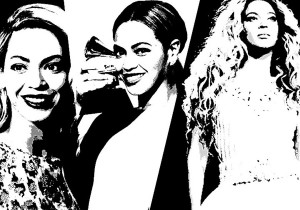Time recognition of Beyoncé a significant step
As much as I love my moody Radiohead music, if I could set my life to a certain soundtrack, it would be completely Beyoncé songs. This playlist would include a throwback to Destiny’s Child’s “Bills, Bills, Bills,” then move on to Queen Bey’s solo work such as “Crazy in Love” and “Single Ladies.” I think what I enjoy most about Beyoncé’s songs is that they always instill a sense of empowerment in me, and that is why it was completely fitting for her to grace the U.S. cover of Time magazine’s “100 Most Influential People.” Rocking long hair and a white bodysuit, Time’s recognition of Beyoncé signifies a shift in our perception of power.
Influence is a hard factor to measure, as it’s not something marked by the most popular celebrity of the moment. Someone with a lot of exposure, meaning significant media attention, could have little effect on society, while others without the spotlight could be instrumental in society. For example, Snooki, though inspiring me to get my gym-tan-laundry on, has little bearing on my life. General Motors CEO Mary Barra, however, is the first female CEO of any major automaker, but is someone I wasn’t really familiar with until she too graced the international cover of that 2014 “Most Influential” edition.
In 2007, Time’s managing editor Richard Stengel wrote, “What we look for is people whose ideas, whose example, whose talent, whose discoveries transform the world we live in. Influence is less about the hard power of force than the soft power of ideas and example.” Beyoncé not only defies the standard notion of male dominance, but she also dissolves racial barriers. Her cover is revolutionary, as it not only calls all people to challenge the social norms, but also models a realistic picture of the composition of people.
First, Beyoncé’s cover is a celebration of women. She is the mascot of this year’s record-making 41 women featured on the top 100 list. Sure, Beyoncé has made some disheartening comments that made me question her feminist credentials in the past, and her cover boasts her exuding sexuality, a trait which compliments more masculine tastes. She recognized the issue of gender inequality in January for Maria Shriver’s The Shriver Report, however, reiterating her stance that women should receive all the opportunities as men. A more cynical me would say that this image could be a marketing ploy, but her words and her support of women is truly inspirational. Her words, written, vocal and musical, are a catalyst for abolishing that deeply rooted inequality, and Time magazine highlights that empowered fight.
Following Beyoncé’s cover, actress Lupita Nyong’o recently nabbed the highly coveted People’s Most Beautiful title. Together, these covers added to the popularity of the worldwide Twitter trending topic, #whatispretty, which originated after Beyoncé’s “Pretty Hurts” music video. This is a message to the audience that beauty is not just a tall, skinny Caucasian girl, but beauty comes in varieties exceeding that boxed notion. These covers underscore that beauty has the power to change the world. It’s not just sex appeal, or being “pretty,” but rather how to use the ideal conventions of beauty to change our antiquated notions.
These superlative lists often commemorate a figure for having done a remarkable thing in a certain year, but what Beyoncé and Nyong’o are doing is current and will happen in the future.
Using Stengel’s criteria for measuring influence, Beyoncé has allowed at least me to feel strength in my gender and my race. It is a feat that is remarkable and worthy of Time’s title but also shows that we can defy antiquated social institutions. It makes me optimistic about the future knowing that Beyoncé is out there being a beacon of change with her actions. So yes, when Queen Bey says, “Bow down,” you bet I will.
Danni Wang is a freshman majoring in psychology. Her column, “Pop Fiction,” ran Tuesdays.


